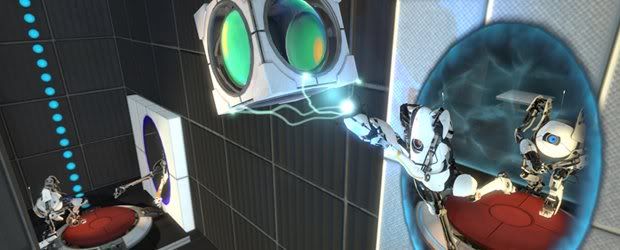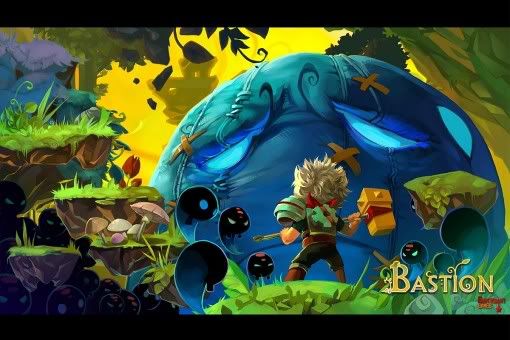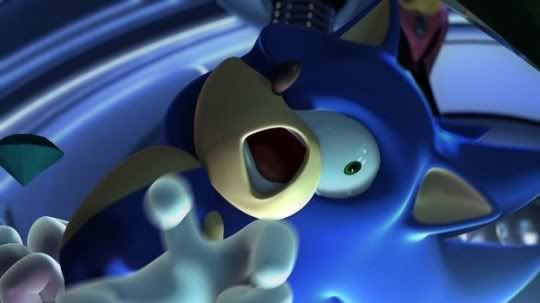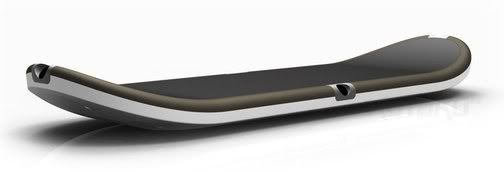This post has not been edited by the GamesBeat staff. Opinions by GamesBeat community writers do not necessarily reflect those of the staff.
In the year 2012, most of the world is connected by the Internet, a glorious thing that allows for information, ideas, opinion, and more to be shared with millions of people instantly.
Gamers are a very active bunch when it comes to the Internet. We love being able to play games with our friends, see online profiles, compare achievements/trophies, exchange opinions on forums, read up on the latest news, and…well, the list goes on and on.

We are constantly sharing; we're an open book for anyone who wants our take on something. Some developers have embraced this with open arms while others can't seem to figure out just what it is gamers want.
Communication is huge when it comes to the gaming industry. If a developer misses the mark, failing to deliver a product we want then their game tanks, studios close, and no one wins. In today's world, I'm amazed more developers haven't tapped into this massive ocean of information we are so ready to hand over. Some development studios use this to their advantage, accessing their forums, Facebook, Twitter, and more to hear our thoughts, opinions, and wants from their products.
Development studios like Valve Software, the creators of such wonderful titles like Half-Life 2, Counter-Strike, and the upcoming DOTA 2 constantly tap into their fan base to learn everything they can about what we want. This has worked in their favor time and time again if you take a look at their release record. Pretty much everything they release is reviewed incredibly well and highly revered by gamers the world over.
Take 2011's Portal 2, for example. Not only was this an incredible follow-up to the original, but Valve pulled a massive turn-around with it. After a series of play-testing sessions, those involved didn't like the original concept Valve had built. The first idea for Portal 2 didn't involve Chell, GLaDOS, the portal gun, our beloved Companion Cube, or anything like that.
Listening to what this small group of fans wanted, Valve tossed out that version of Portal 2 and built the game that was ultimately released. Makes you wonder what the original concept was, but you can't argue with the final results.

Listening to your fan base goes beyond the final product you release and relates to how you deal with your fans on a day-to-day basis. Supergiant Games, the company behind Bastion, was recently contacted by a deployed Air Force member in Afghanistan. Being unable to get online to download the game, he reached out to Greg Kasavin, Creative Director at Supergiant Games, for help. Kasavin responded by not only sending a physical copy of the game as the installer burned onto a DVD but also threw in some free swag as well.
Thanks to Kasavin's efforts, a fan who hadn't even spent a dime on his game was able to enjoy it. This isn't even the first time Supergiant Games has gone out of its way to help out a fan in need. Last year, the developer collaborated with another fan who was hoping to have the Narrator from Bastion say a few words during his wedding ceremony. Supergiant Games went above this request by working with the original voice actor Logan Cunningham so he could narrate the entire wedding.
Maybe this is just me, but both of these cases are insanely awesome.
Sadly, though, not every development studio takes advantage of our willingness to communicate. Some studios seem almost deaf to our pleas, releasing games that make everyone wonder just what were they thinking.
Sega and Sonic Team have been at the top of this list numerous times. Sonic the Hedgehog has a long-standing history of releasing sub-par games that constantly fail to live up fans' expectations. From 2006's Sonic the Hedgehog to 2008's Sonic Unleashed to 2009's Sonic and the Black Knight and beyond, Sonic Team failed to deliver what fans wanted.

You didn't have to look hard online to find what fans desired from their blue hero: a return to form with great platforming and speed. Yet, for some reason, Sonic Team completely missed this. The series was constantly bogged by gameplay gimmicks, pointless side characters, and development that focused on all the wrong aspects of what made a Sonic game great.
It wasn't until the release of Sonic Colors followed by Sonic Generations late last year that the franchise started to get back on track. Even Sonic 4: Episode 1 didn't live up to Sonic Team's promise of developing a true sequel to the Genesis era titles.
Activision and its stable of development studios are no stranger to missing the mark. The Tony Hawk series and Guitar Hero franchise have both been hit hard due to disconnect with fans. Trying a number of things, Activision shuffled developers around who worked on these franchises, changed up the gameplay by focusing on different or new aspects that didn't make sense, and even added new peripherals for both franchises.
Guitar Hero went from being the leading rhythm game series to being outshone by the newcomer Rock Band, developed by the original Guitar Hero studio Harmonix Music Systems. Instead of listening to the consumer, Activision handed the Guitar Hero franchise off to Neversoft, former developer for Tony Hawk.

The Guitar Hero series went from being about the music with challenging gameplay to suddenly featuring off-the-wall storylines, questionable music sets, and constant releases. Activision ended up shelving the franchise, canceling the 2011 lineup, and discontinuing it completely until it could be reinvented. So far, nothing has been announced about Guitar Hero's return. A lack of focus, oversaturating the market, and terrible set lists ultimately sunk this franchise.
Tony Hawk fared no better as the series moved away from the over-the-top stunts, relying on pointless peripherals that only drove the price up and left thousands of games on store shelves. Newcomers like Skate from EA Black Box found new ways to innovate in the skateboarding genre, such as using the analog sticks to control the tricks players performed via the new "flick system" instead of relying on button presses. Skate quickly outpaced Tony Hawk, leaving many to wonder why the new developer, Robomodo, was so set on using the new skateboard peripheral over building fun gameplay mechanics.
Eventually Activision was forced to shelf the series for 2011, but brought it back in 2012 with Tony Hawk Pro Skater HD, which recreates select levels from the original on the Xbox 360 and PlayStation 3.
These studios aren't alone in this lack of communication. Hard to believe that while living in an age where the Internet can be accessed in the palm of your hand, development studios still continue to miss what fans want from their games. If more studios took the time to listen to what we want instead of hoping to produce the next big craze, perhaps we wouldn't see so many once-loved franchises being shelved until who knows when.
